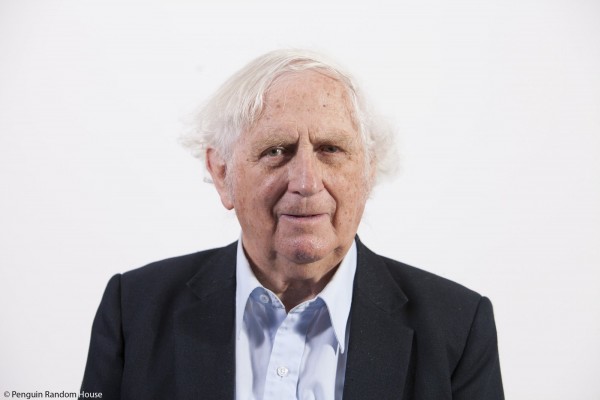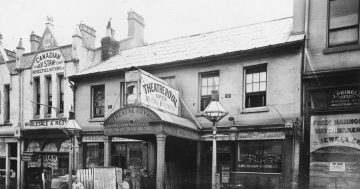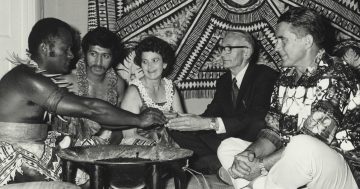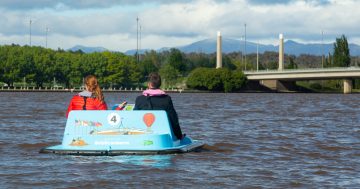
I clearly remember my first long distance overseas trip (Sydney to Hong Kong on a Qantas Boeing 707). It wasn’t the first time I had flown but it was my first overseas trip and my first time in a “new jetliner”.
Leaving Sydney, I caught a glimpse of familiar landmarks and beautiful Sydney Harbour: the ferries, cargo ships and the white sails of small boats like a frame out of a tourist promotional film.
Then the rapidly ascending aircraft pushed through the cloud and it was another nine hours before it descended over the mayhem of Hong Kong Harbour.
This was my “Narnia moment”, leaving one world through the clouds and breaking back through into another world with sampans jostling around on the water below.
This immediately evoked memories of my primary school days when we saw pictures (mainly drawings) of far away exotic places which were identified by things like sampans and rickshaws. We could only dream about going to those places then.
It was an experience I will remember forever.
Nowadays, a 9-hour flight will get one almost half-way to Europe and about three-quarters of the way to the Americas. This week, Qantas announced it will soon be introducing non-stop flights from Perth to London. I am not sure how long these flights will take, but I remember being on one of the first Pan American Boeing 747SP non-stop services direct from Sydney to San Francisco in the 1970s – an exciting but tedious 15-hour flight.
The only ordeal worse than that was a 2-day trip in 1984 from Canberra to Montevideo via Sydney, Fiji, Vancouver, Toronto, Lima, Santiago and Buenos Aires. This was the only air route available at that time, crossing the equator twice and travelling almost the entire length of the Americas.
While distance has been somewhat conquered by modern airline travel, the International Date Line remains unchanged. While most of us will grumble about the discomfort of long-distance air travel and the jetlag which comes with it, these were things that the first travellers to Australia didn’t have to worry about given the length of their ocean voyages and the very real and life-threatening hardships they had to endure.
My long preamble is necessary to explain why tonight’s event is so important to me and indeed many other Australians who are demographically referred to (sometimes disparagingly) as “baby boomers”.
The Tyranny of Distance: How Distance Shaped Australia’s History by Geoffrey Blainey was first published in 1966. I read it only 10 years ago and at a time when I had just retired from running a business which necessitated a lot of travel, mainly to Europe. This travelling constantly reinforced to me Australia’s distance from the “rest of the world” and how this has been a natural disadvantage for us in many respects. Yet we have overcome these burdens of fate and prospered.
The Tyranny of Distance covers the trials and tribulations of our geographical placement from the beginning up until recent times. I found it explained a lot as to why Australians are so competitive in many fields despite our disadvantages, and the way in which we “punch above our weight”. If I were in charge of education policy, The Tyranny of Distance would be compulsory reading for all secondary school students in Australia.
A few weeks ago, I was elated to find The Story of Australia’s People: The Rise and Fall of a New Australia, Geoffrey Blainey’s latest account of Australian history covering the last 170 years, in my Christmas stocking.
The author will be at the National Library of Australia between 6pm and 8pm tonight, and will be signing books for those who are interested. Details and bookings here.
Professor Blainey is one of Australia’s most acclaimed and widely-read historians as the author of over 35 books completed including The Tyranny of Distance, Triumph of the Nomads, Black Kettle and Full Moon, A Short History of the 20th Century, Sea of Dangers, A Short History of Christianity and the best-selling A Short History of the World.
The historian has held chairs in Economic History and History at the University of Melbourne for 21 years. He was a delegate to the 1998 Constitutional Convention and also chaired various Commonwealth Government bodies including the Australia Council, the Literature Board, the Australia-China council, and the National Council for the Centenary of Federation.




















